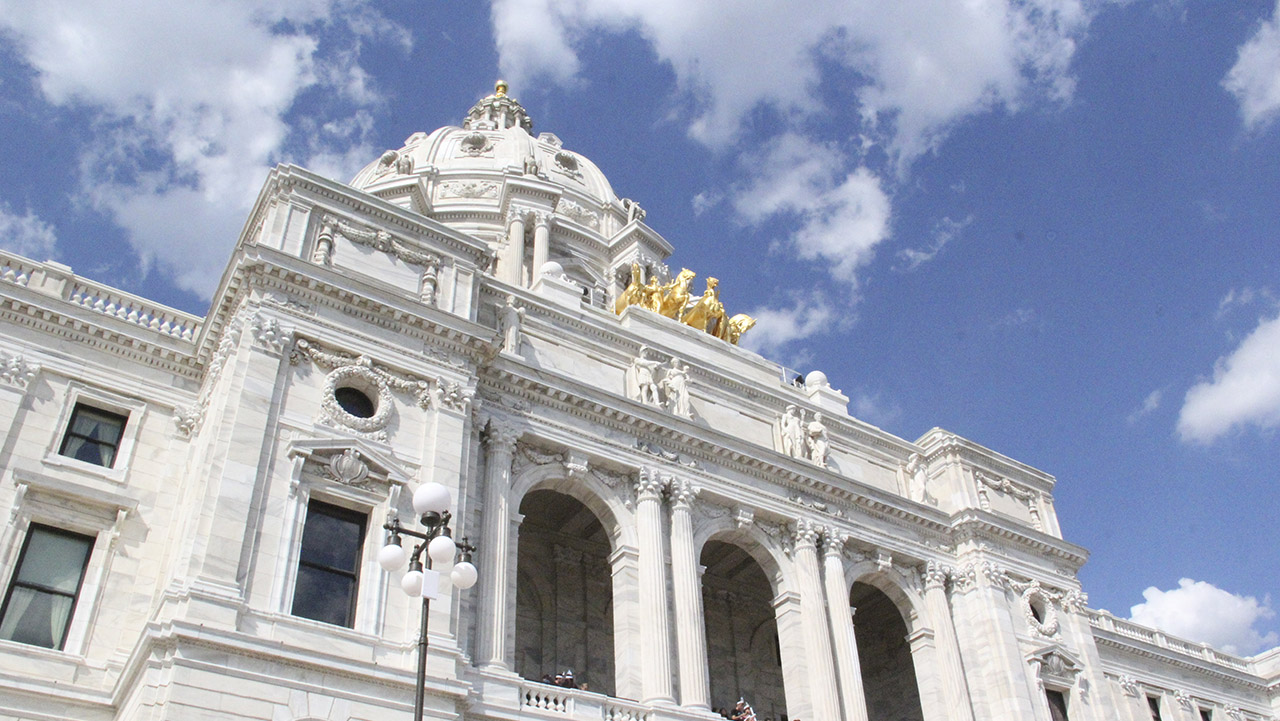
Minnesota legislators delivered the most impactful climate session in state history in 2023 with a flagship policy win of the 100 percent clean electricity law accompanied by a broad suite of historic investments. Thanks to their work in 2023, Minnesota was once again positioned as a leader in addressing climate change! Of course, setting ambitious goals and actually achieving them are two very different things.
Fortunately, Minnesota’s elected leaders have once again answered the call by delivering a broad package of thoughtful, strategic policies and investments that will help better-position Minnesota as a national leader to achieve equitable economy-wide decarbonization at scale.
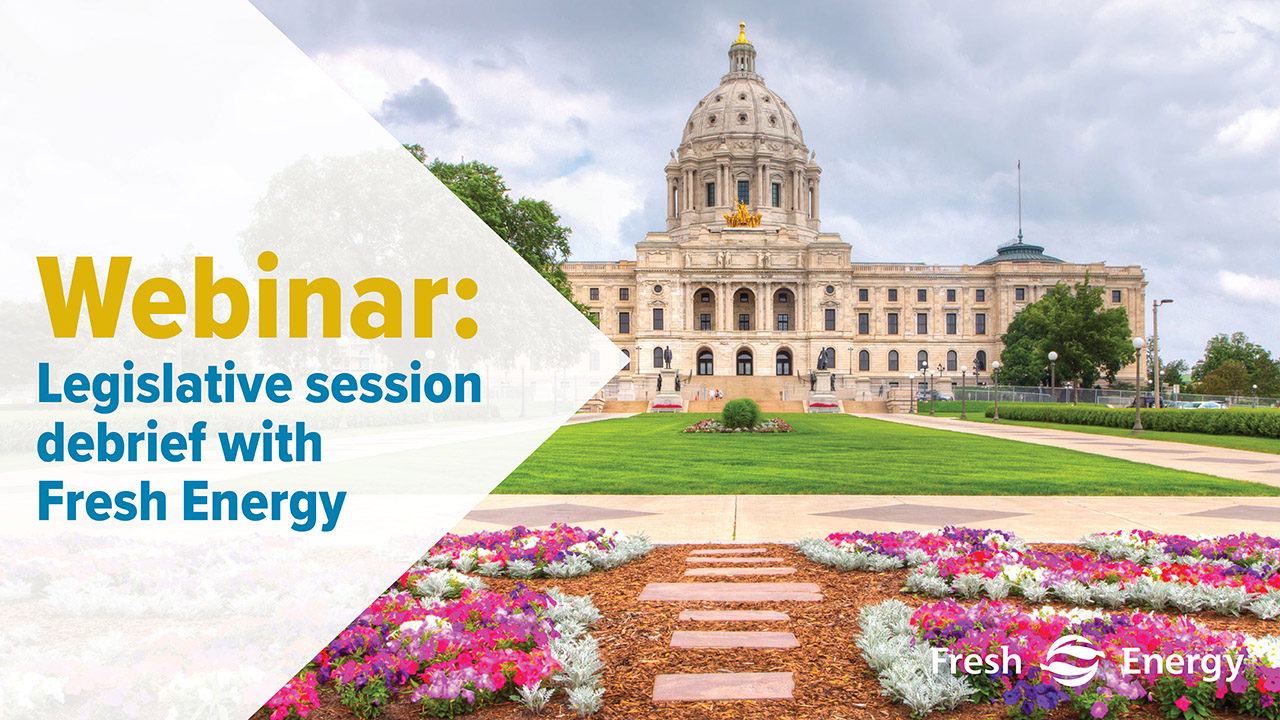
Fresh Energy worked diligently alongside many partners and stakeholders to help shape the 2024 session of the Minnesota Legislature into one that Minnesotans who care deeply about clean energy and climate can be proud of. In addition to providing technical analysis, bill drafting support, strategic communications, and public education on a wide range of topics throughout the session, Fresh Energy staff also testified dozens of times in person and in writing to ensure legislators had accurate and timely information.
Overall, the 2024 legislative session delivered significant wins for clean electricity, buildings, transportation, and beyond. Here are a few of the key accomplishments we’re celebrating from this session:
Significant clean energy legislation and policies for 2024
Accelerated residential energy code for a safer, cleaner Minnesota
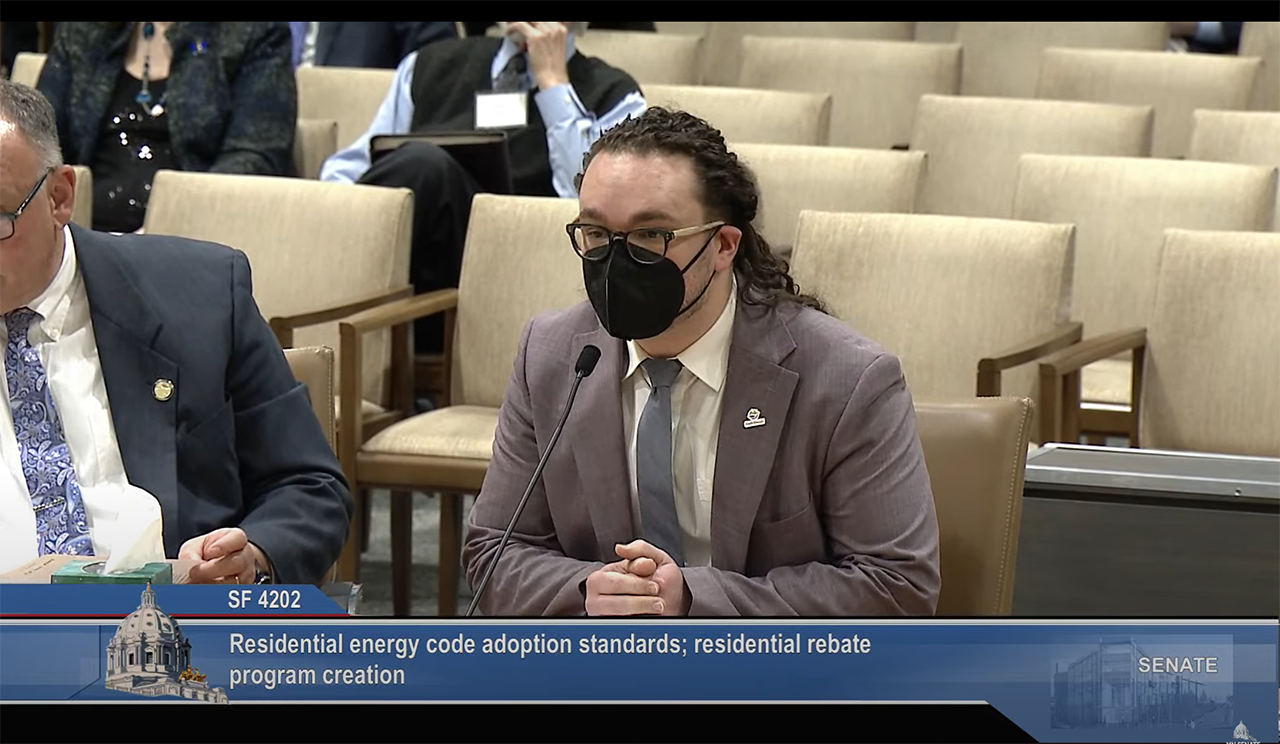
In 2023, Minnesota passed legislation requiring the commercial energy code to achieve 80% or greater reduction in annual net energy consumption by 2036. This year, Fresh Energy worked to support a similarly ambitious provision to cut emissions from the residential energy code to meet the state’s climate targets. With this bill we’ve helped put a stake in the ground for cleaner buildings in Minnesota! The accelerated residential energy code provision requires the code to achieve a 70% reduction in energy use by 2038 compared to the 2006 baseline. This will ensure that newly constructed homes sip rather than guzzle energy, improve indoor air quality and comfortability, lower greenhouse gas emissions, and save homeowners and renters money by reducing energy costs and improving efficiency. Learn more about the bill.
Clean energy permitting modernization
Minnesota’s landmark 100% clean electricity by 2040 law is both an ambitious target as well as a critical building block to our state’s future success taking on the climate crisis. In order to actually achieve that target, however, Minnesota urgently needs to speed up the pace at which clean energy can be “deployed” or built. Prior to the 2024 legislative session, the Minnesota Public Utilities Commission (PUC) convened a stakeholder group to develop recommendations on legislation to modernize Minnesota’s approach to permitting clean energy projects. The stakeholder group’s report became the basis for legislation that would implement a number of important improvements that, collectively, significantly reduce the time required for both clean energy and transmission projects to be reviewed, approved, and permitted.
Electric transit bus planning
Transportation is the single largest emitting sector of the economy, both nationally and in Minnesota. This year the Legislature passed several exciting provisions to reduce transportation-based greenhouse gas emissions. In particular, one section updates what Metropolitan Council’s plan for a transition to zero-emission transit buses should include in order to meet our state’s climate goal of net-zero GHG emissions by mid-century. Specifically, this update requires the Met Council to establish a bus purchasing strategy so that by 2035, all new 15+ passenger buses acquired by the agency will be zero-emission. It also requires the Met Council to prioritize deployment of these clean air-friendly buses in environmental justice areas, and consider electric utility planning in the transition.
Clean lighting bill saves Minnesotans money, provide safer lighting
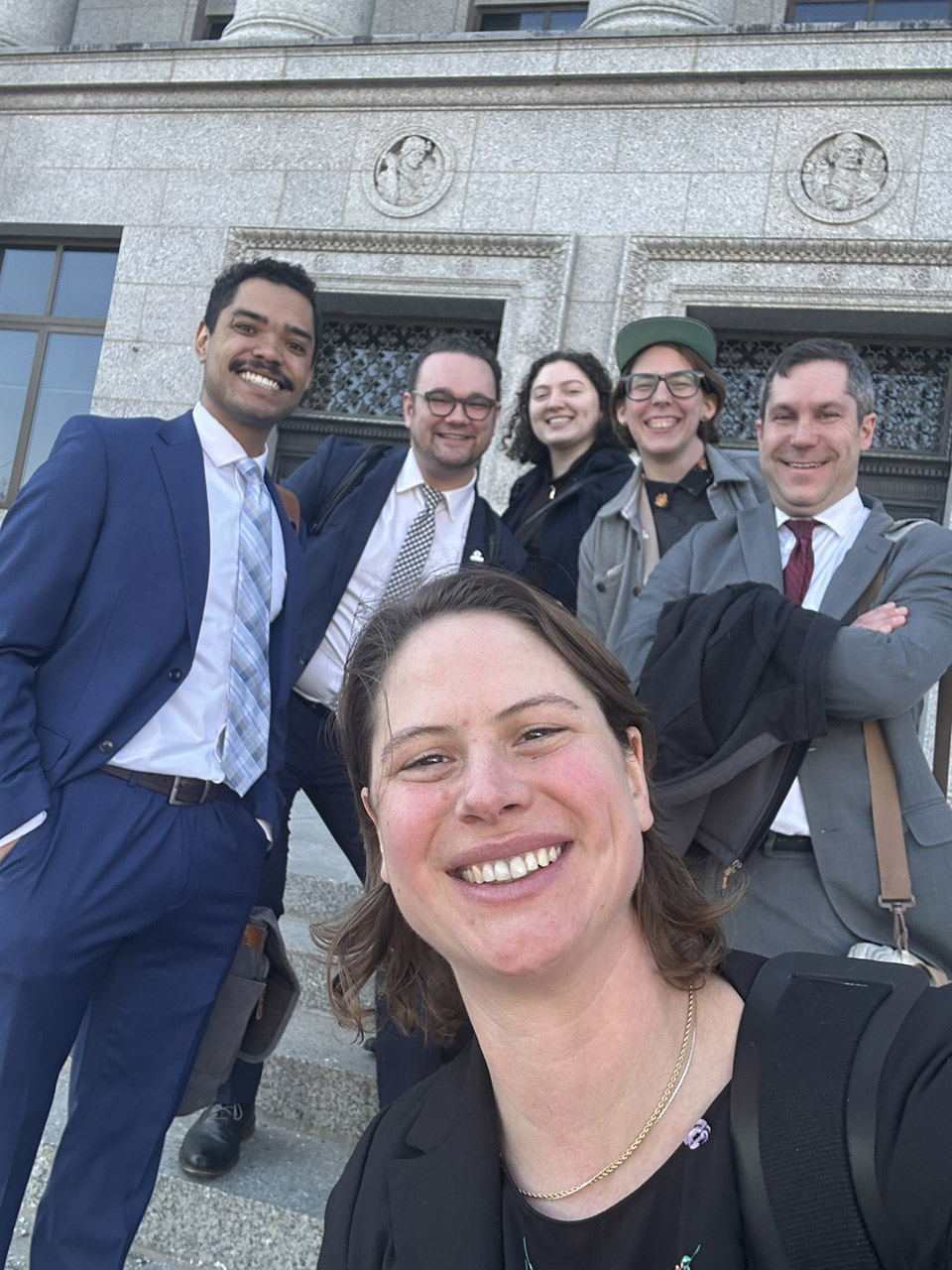
Fresh Energy is working to build a brighter, cleaner future for all Minnesotans, and never has that vision been taken more literally than the clean lighting bill. Fresh Energy worked closely with legislators to pass a bill that phases out all lightbulbs containing mercury over the next few years. Fluorescent lights, which always contain mercury, are inefficient and toxic, which is harmful for both our environment and human health. By phasing out fluorescent lighting, we are accelerating our transition to LED lighting and other clean lighting alternatives. This gives consumers access to healthier and more energy efficient lighting that is more cost effective and reduces emissions. Learn more about the bill.
Small electric outdoor equipment grant program
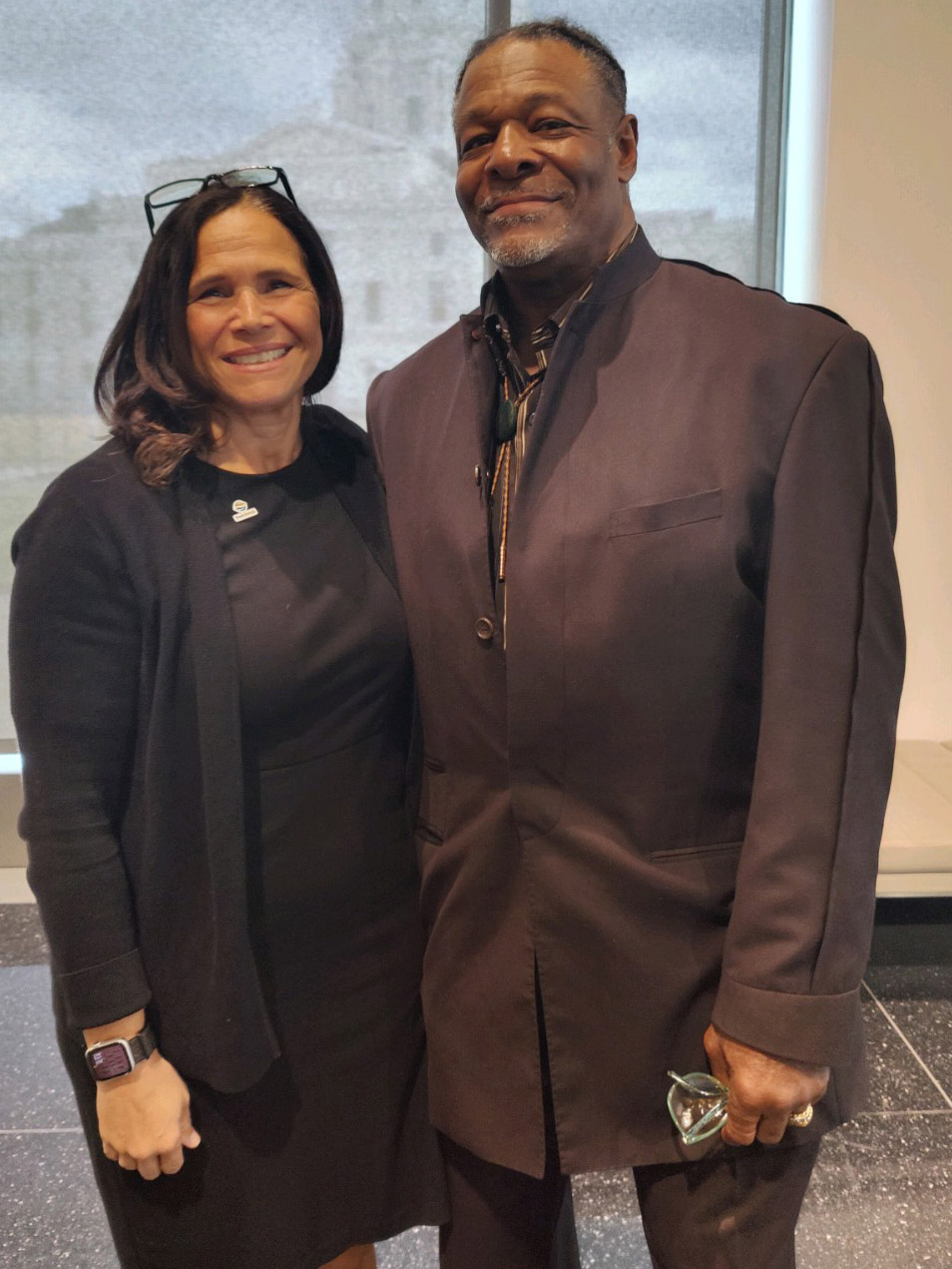
Community Stabilization Project, in collaboration with Fresh Energy, worked with legislators to pass a small electric outdoor equipment grant program to facilitate the transition to electric yard tools. This program was appropriated $1,000,000 and is required to be developed with the input of environmental justice communities and will prioritize grants to residents that experience the worst impacts of air pollution. Electrifying outdoor equipment has many benefits, including lower operating costs and cutting harmful air pollutants. As more Minnesotans electrify their outdoor equipment, this grant program is an important step to make sure no one is left behind. Read more about the bill.
Geothermal for Sabathani Community Center
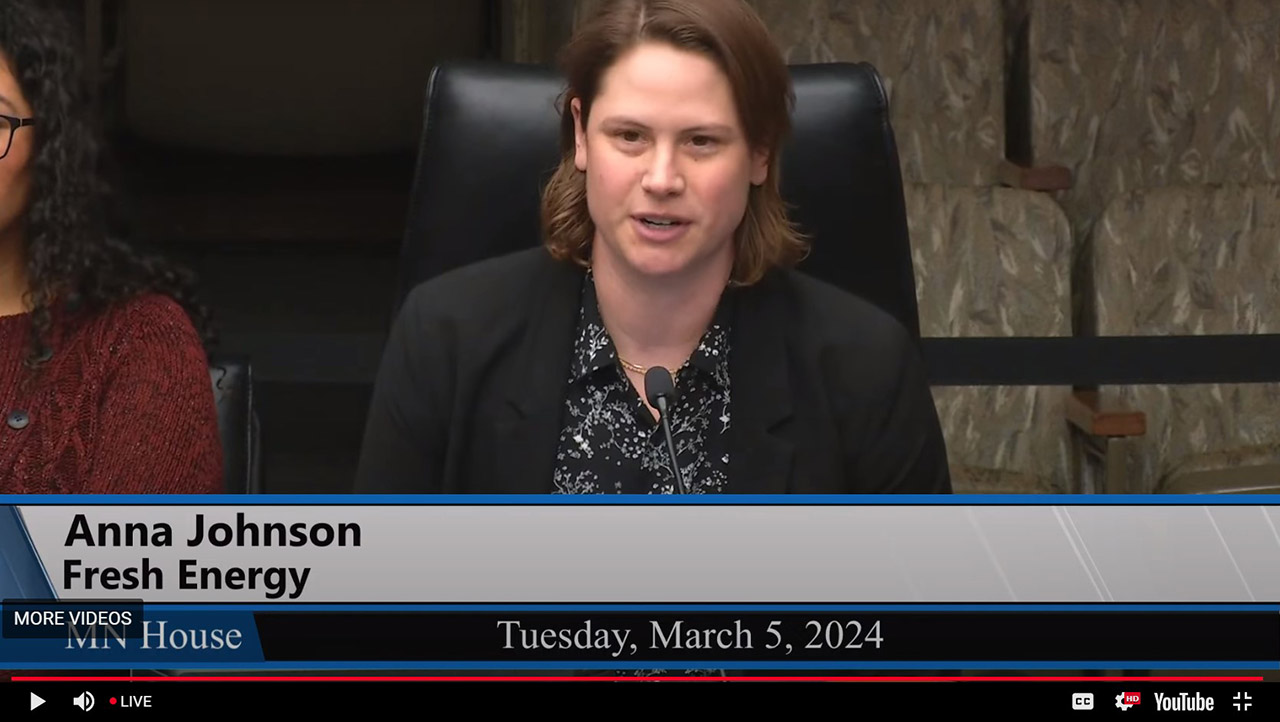
Sabathani Community Center in South Minneapolis is a nonprofit crucial community hub that provides senior housing, food distribution, workforce development, youth programs, and more, serving more than 50,000 people annually. Currently, the building is heated by outdated furnaces that impose huge monthly costs and rely on fossil fuels. This session, the Minnesota Legislature approved $6 million to support the installation of a district energy geothermal heat pump system. The ultra-efficient system will provide carbon-free, affordable heat to serve this community hub.
Geothermal planning grants
Geothermal planning grants were one of many wins for expansion of clean geothermal building heating in Minnesota. The Legislature established a new grant program and appropriated $1.2 million to support local governments in the “pre-design” phase of geothermal development. Inspired by work that Fresh Energy has been doing to support communities hoping to develop geothermal projects, these funds will help cities and counties with grants of up to $150,000 to determine if geothermal is a good fit and if it is a feasible option given the geology of the site. Other geothermal bills to celebrate include a geothermal deployment work group, a statewide study of the most suitable locations for geothermal energy systems, and a baseline investment in thermal energy networks for utilities participating in the Natural Gas Innovation Act (NGIA) pilot projects.
ECO Act updates
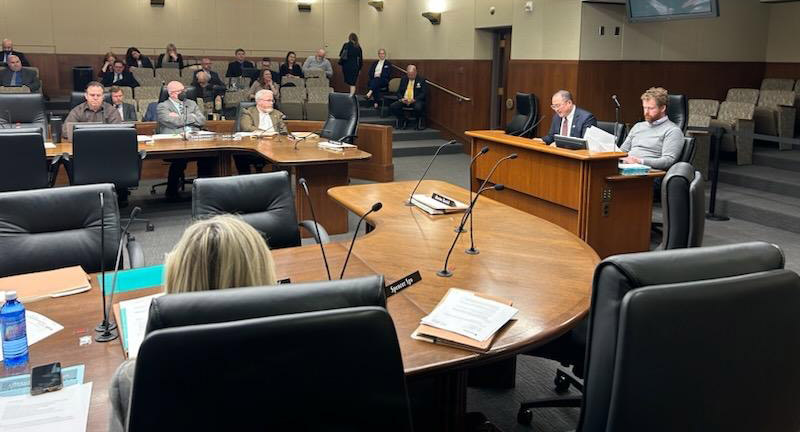
Minnesota has long been a leader on energy efficiency, thanks in large part to a bipartisan, statewide policy that was last updated in 2021. Known as the Energy Conservation and Optimization (ECO) Act, the legacy of broad stakeholder input and support for this policy continued into this year’s legislative session. Legislation that passed this year includes important technical updates to this policy that will help utilities streamline their energy efficiency efforts. The updates will support electrification across utility service territories, and also align the policy with federal electrification incentives that became available through the Inflation Reduction Act (IRA).
Building Minnesota’s climate legacy
After two incredibly productive years of action on climate, Minnesota’s leadership and progress is undeniable. Of course, there is still a sizeable amount of work remaining to ensure we meet our state’s climate goals and Minnesota needs everyone pitching in to help if we’re going to get there! One especially great way to stay involved is to join Fresh Energy’s growing Action Network.
In 2024 Action Network members spoke up repeatedly to make sure that legislators were prioritizing climate and staying focused on the impactful policies that Minnesotans expect to see as our energy transition accelerates.
Fresh Energy is extremely grateful for the large and growing community of leaders, advocates, stakeholders, and community organizations that have made the past two years so successful at the Minnesota Legislature. The climate policies and investments that have been made are the direct result of work done by thousands of Minnesotans, often over many, many years. We look forward to both new and continuing partnerships as the work continues in the years to come.
The 2025 session of the Minnesota Legislature convenes on January 14, 2025, and we’ve already begun work on thinking about climate and clean energy goals for next year. Please feel free to share your ideas!
Audio more your thing?
Stream the episode of Decabonize: The Clean Energy Podcast from Fresh Energy and get the session scoop right from staff.
